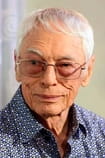

Alexander Zatsepin
Aleksandr Sergeevich Zatsepin (born March 10, 1926, Novosibirsk) is a Soviet and Russian composer. Gained fame as a music author for many popular films. People's Artist of the Russian Federation (2003), Honored Artist of the Russian Federation (1997). Alexander Zatsepin was born on March 10, 1926 in Novosibirsk in the family of surgeon Sergey Dmitrievich Zatsepin and teacher Valentina Boleslavovna Oksentovich. In 1941, his father was arrested under article 58 and sentenced to 10 years in prison. After the release of the family did not return. Mother raised her son alone. Zatsepin graduated in 1956 from the Almaty Conservatoire in the class of piano and composition (pedagogue E. G. Brusilovsky). Thesis is the ballet “Old Man Hottabych”, which was staged at the Alma-Ata Opera and Ballet Theater. He worked as a music designer at the studio "Kazakhfilm". In the same 1956, wrote the music for his first film "Our dear doctor." In order to record music, one often had to come to Moscow, since Kazakhfilm did not have the necessary working conditions. As a result, the head of the Moscow Symphojaz, Viktor Knushevitsky, proposed Zatsepin to move to the capital. Since 1965, Alexander Zatsepin worked together with Leonid Derbenev and their duet became the most famous. Together they wrote over 100 songs. Their collaboration continued until the death of the poet in 1995. In 1978, the film "June 31" was released, which became Zatsepin's great creative success. Songs from the movie based on poems by Leonid Derbenev and Yuri Entin have become very popular. Revolutionary (for that time), the arranged melodic music was again recorded at the apartment of Zatsepin. However, after one of the film’s actors, Alexander Godunov emigrated to the United States six months after the film’s premiere, the film went on the shelf for seven years. The constant attacks of the bureaucratic apparatus and the interference with creativity created a lot of trouble for the composer. So, in the USSR, he could not perform the work under the contract proposed by the American film company. In the summer of 1982, Zatsepin went to France without changing his citizenship. After the departure of the song, Zatsepin was mercilessly criticized, in particular, the newspaper Trud on June 3, 1983 published an article “Is there only a moment?”, Which said that this song is essentially about weak people who only ache, that life is fleeting and that they care only about their own fate. It was argued that this was frank vulgarity, clothed, unfortunately with a beautiful melody, and therefore, easily remembered, disturbing young souls with false romance, petty-bourgeois notions of happiness. In 1986, with the advent of perestroika, Zatsepin returned to the USSR. New films with his music came out: “Where is the nofelet?”, “She is with a broom, he is in a black hat,” the collaboration with L. Gaidai continued. In 1997, Zatsepin wrote the music for the song of Marina Khlebnikova "Oblique rains" on her poems. The song quickly became very popular and reached the final of the festival "Song-98". Alexander Zatsepin wrote over 300 songs and composed music for more than 120 films and cartoons. He is an Honored Artist of Russia, a corresponding member of the National Academy of Cinematographic Arts and Sciences (2002), a member of the USSR Union of Composers (1956) and the USSR Union of Cinematographers (1957).
Olvass tovább